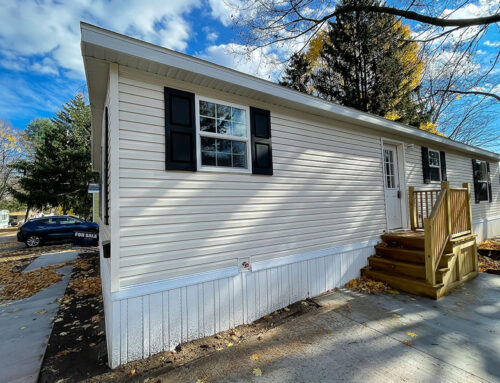Changes to the market’s condition mean there’s an opportunity to profit, assuming that I understand what’s going on and am willing to act on it. Yes, I think that there’s an opportunity for investors even amidst the struggling, strife, and economic weirdness of the coronavirus pandemic. And yes, there’s soon going to be another significant change which I think you should be aware of, and ready to act on, especially if you’re an investor in New York.
Since the start of the U.S. Treasury’s Homeowner Assistance Fund in March, foreclosures have been dramatically restricted throughout the country. As nobody could have predicted the pandemic nor the scale of the government’s response to it, the shock to the market was both intense and enduring. If you relied on foreclosure auctions to fill your deal flow, you have my condolences, but the good news is that your absent cash cow is going to come home to the pasture soon enough.
Only state-level prohibitions remain because the federal moratorium has been over since the end of July. The New York foreclosure moratorium ends in January next year, and you need to ensure that your business is ready for whatever comes next. If you aren’t sure what happens next, have no fear; I’m here to guide you. You’ll first need to appreciate how things have been different.
How the Moratorium Changed the Market
While the pandemic made the entire real estate market go wonky, the demand for foreclosed homes faced a total shutdown.
In general, regional markets with high volumes of foreclosure activity were more impacted than those with lower activity. In New York, foreclosure activity was roughly average before the pandemic, so the macro effect of the foreclosure hiatus was present, but limited in intensity.
Still, the New York foreclosure moratorium distorted the real estate market in a handful of ways, including:
- Increasing competition among discount home buyers
- Increasing upward price pressure for rehab-ready homes
- Compressing deal timelines and tightening financing requirements
- Creating a backlog of properties eligible for foreclosure
If you’ve been operating your real estate investing business throughout the pandemic, you’ve probably already experienced these trends, perhaps to your frustration.
It has been challenging to separate the specific impact of the foreclosure moratorium from the other economic factors that distort the market throughout the pandemic so far. Many economists seem to think that the foreclosure moratorium didn’t impact the market for homes. In many places, foreclosures are only a tiny fraction of the total real estate buying activity. But, I’d trust the impressions of New York area real estate investors, as often the feeling of a market is something that economic models have a hard time capturing.
Of the market-distorting factors I mentioned, the last one is the most important for real estate investors to understand. Because banks couldn’t advance their foreclosure pipelines past a critical point due to the moratorium, properties eligible for foreclosure piled up, and they’ll soon be eligible for processing once again.
What To Expect When Foreclosures Start Up Again
Don’t get dollar signs in your eyes just yet. There’s no guarantee of a gold rush anytime soon.
Banks generally haven’t increased their foreclosure staff to process the backlogs, which means that it’ll take some time before the foreclosed homes make it to county auctions once the moratorium ends. So, you shouldn’t expect a glut of foreclosed homes to hit the market in January. Instead, it’ll likely be a trickle of additional properties on top of the standard flow existing before the pandemic. If you can get a source for leads on homes before they are actually available for everyone to put a bid on, you’ll be in better shape than most.
If you want to get the most out of the end of the New York foreclosure moratorium, you’ll need to prepare your business. That means you should:
- Arrange additional financing sources and expand your access to credit
- Start hunting for leads on properties at high risk of foreclosure
- Make sure that your contracting staff can take on extra work
- Look at county foreclosure auction sites regularly
- Consider initiating a marketing campaign to advertise your availability as a buyer
- Consider leaving some slack in your deal flow if it will enable you to pursue higher-margin foreclosure opportunities
If that list seems daunting, don’t worry. They’re all activities that most real estate investors were doing before the pandemic. Nothing has fundamentally changed, and the distortions to the market will smooth out with time.
There are no new significant traps to watch out for if you’re just getting started with your real estate business. Especially if you tried to get going over the last 18 months and had a tough go at it, I would encourage you not to get discouraged. A fresh crop of foreclosed homes hitting the market will ease some of the intensity of competition, which will, in turn, start to lessen the price pressures and make signing deals (slightly) less of a race against time.
Don’t Expect Miracles Unless You’re Prepared To Make Them Yourself
As always, you’ll need to put in the work to make sure that your business is properly positioned to take full advantage of what’s going on in the market, whether it’s the end of the New York foreclosure moratorium or a credit crunch. Suppose you don’t adapt your investing strategy to the upcoming changes to the market conditions in New York. In that case, your business will probably survive—but to thrive, you’ll need to pivot into the market you know is coming. In this vein, it’s often helpful to team up with a national franchise for independently owned and operated real estate investors, like HomeVestors®.
Whereas you might struggle to set up a marketing operation or access complex money financing, HomeVestors® franchisees have direct access to leads generated by a national advertising campaign, not to mention an open channel to rapid capital.
Plus, HomeVestors® provides its franchisees with valuation software that helps them to increase their margins by picking the best rehab-ready properties in their markets. In a running-hot foreclosure scenario like what is likely to happen at the end of the New York foreclosure moratorium, it’ll be imperative to understand which properties are being overvalued because of scrambling buyers, so franchisees will be uniquely disposed to flourish.
As though that weren’t enough, HomeVestors® franchisees are also part of a network of experienced real estate professionals who can support each other with mentorship and entrepreneurship tips. Investors who join the HomeVestors® team are thus as prepared as they can be to make money from flipping recently foreclosed properties next year, and I can’t recommend it enough.
If you’re considering starting a real estate investing business, request information about becoming a franchisee today.
Each franchise office is independently owned and operated.
Contact
"*" indicates required fields





